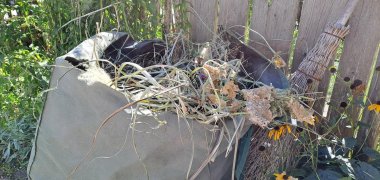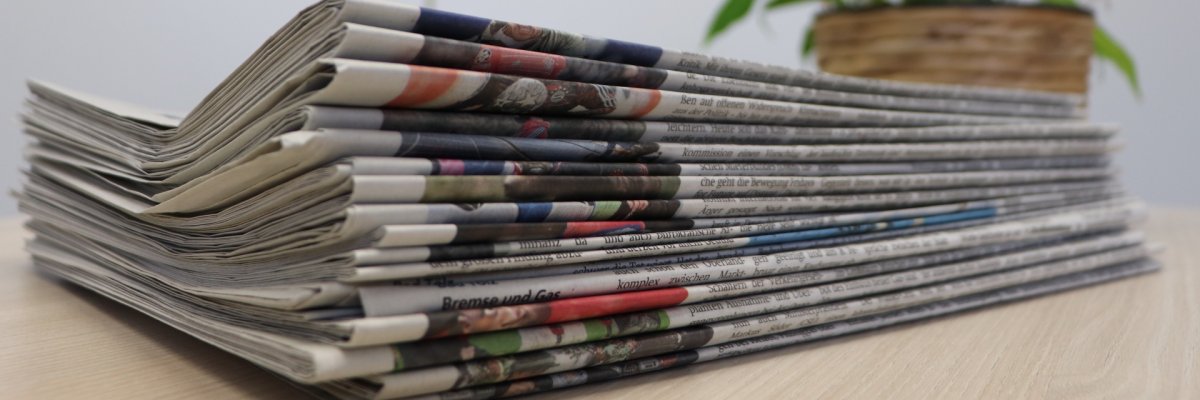Press release
dated 16.09.2025, No. 148
Dispose of garden waste correctly

Anyone who has garden waste is always faced with the question of how best to dispose of it in a professional and environmentally friendly way. In principle, green waste can be rotted or composted on the property where it is produced. Alternatively, the plant waste can be chopped and composted to provide valuable, free fertilizer for the soil. If you do not have these options, you can dispose of small quantities in the organic waste garbage can or larger quantities at the well-known green waste collection points in the district.
In most cases, however, the burning of plant waste is prohibited; anyone who acts improperly in this regard is liable to a fine. Green waste may only be burned in rare exceptional cases and then strict requirements apply. For example, green waste may only be burned outside under the supervision of at least two people over the age of 16 on working days between 8 am and 6 pm. Anyone leaving the fireplace must extinguish the embers completely. To avoid false alarms, it is advisable to notify the Oberland Integrated Control Center in advance by calling 0881/92585-100.
Green waste should also not be left to rot in forests and meadows, as this severely disturbs the nutrient composition of the soil. Where green waste has been disposed of, often only nettles are visible after a short time as a result of massive nutrient enrichment. In particular, nitrate enters the soil in this way. The salt cannot be absorbed by the plants in this quantity, but ends up in the groundwater and ultimately pollutes the drinking water.
Deposited grass clippings lead to mold, fermentation and rotting processes and ultimately to the death of organisms. The natural nutrient cycle is disrupted. Branches from shrub and tree cuttings can transmit fungal diseases and the roots, bulbs and tubers contained in garden waste can lead to the unintentional spread of non-native plants such as Indian balsam and giant hogweed. These so-called neophytes displace the existing native flora and the animals that depend on this habitat, thus contributing to species change.
If you have any queries, please contact the Environment Department on 08041 505-356 or the Waste Advisory Service of WGV Recycling GmbH on 08179 933-33.
Sabine Schmid
Press spokeswoman
Bad Tölz-Wolfratshausen District Office
